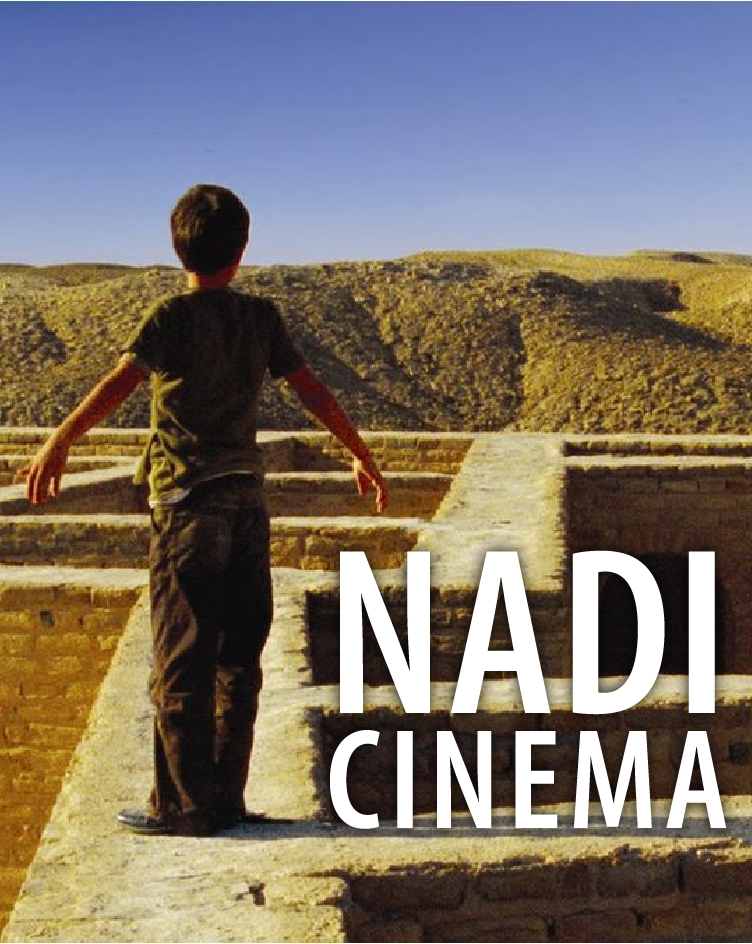
From Turkey to Palestine, Iran to India, Nadi Cinema introduces viewers to the storytelling and vision of filmmakers across North Africa and the Middle East. All films — classics, cult favorites, recent hits, comedies, tragedies, political thrillers, social commentaries, and romances, in black-white and living color — are subtitled in English.
This semester Nadi Cinema is partnering with the course "War, Refugees and Migration in the Middle East", taught by Ted Swedenburg in the Department of Anthropology.
The lineup of five feature films deals variously with the Armenian genocide, Palestinian refugees, Algerian immigrant workers in France, the civil war in Lebanon, and the 1991 Gulf War. Bring a friend and stay for the discussion afterward!
The series is hosted by Joel Gordon, professor in the Department of History at the J. William Fulbright College of Arts and Sciences.
All screenings are free and open to the public, and take place at 7 p.m. in the Hembree Auditorium, room 107E in the Agricultural Food and Life Science building (AFLS), next to the Pat Walker Health Center on Maple Street.
Metered parking is available nearby at the Garland Avenue Parking Garage.
The films include:
Wednesday, Jan. 22 – Ararat (Canada 2020, directed by Atom Egoyan)
From acclaimed director Egoyan, a look back at pre-genocide Armenian society through the eyes of a young man exploring his ethnic heritage, an art historian who lectures on Arshille Gorky, a film director trying to bring the catastrophe to the screen, and an actor cast as the lead villain (English and Armenian with English subtitles - 115 minutes)
Wednesday, Feb. 5 – The Dupes (Syria 1973, directed by Tewfik Saleh)
From a master Egyptian director, this searing adaptation of Ghassan Kanafani's celebrated novella, Men in the Sun, follows three Palestinians of different generations seeking to smuggle themselves from Iraq to Kuwait in search of a better life (Arabic with English subtitles - 107 minutes)
Wednesday, March 4 – Living in Paradise (Algeria/France 1998, directed by Bourlem Guerdjou)
A family displaced by the ongoing Algerian Liberation struggles to get by in France in the early 1960s. An immigrant worker brings his family over and gets more than he bargained for (Arabic and French with English subtitles - 105 minutes)
Wednesday, April 8 – West Beirut (Lebanon 1998, directed by Ziad Doueiri)
Teenage fun and games in Beirut with a home movie camera turned serious as Lebanon descends into civil war. The first film by the acclaimed director of The Insult (2017) and a prizewinner at Cannes (Arabic with English subtitles - 105 minutes)
Wednesday, April 29 – Son of Babylon (Iraq 2010, directed by Mohamed al-Daradji)
Weeks after the fall of Saddam Hussein, a young boy and his grandmother set out from Northern Iraq in search of his father, missing in action since the 1991 Gulf War. Selected as Iraq's official entry for the Best Foreign Language Film at the 83rd Academy Awards (Arabic with English subtitles - 90 minutes)
All five film screenings are free and open to the public, and all are subtitled in English. Nadi Cinema is sponsored by the King Fahd Center for Middle East Studies in the Fulbright College.
For film trailers and more information, visit the Nadi Cinema webpage and follow the King Fahd Center on Facebook and Twitter.
About the King Fahd Center for Middle East Studies: The King Fahd Center for Middle East Studies is an academic and research unit in the J. William Fulbright College of Arts and Sciences at the University of Arkansas, dedicated to the study of the modern Middle East and the geo-cultural area in which Islamic civilization prospered and continues to shape world history. More information about the King Fahd Center can be found at mest.uark.edu. For ongoing news, follow the Center on Facebook and Twitter.
Topics
Contacts
Nani Verzon, project/program specialist
Middle East Studies Program
479-575-2175,